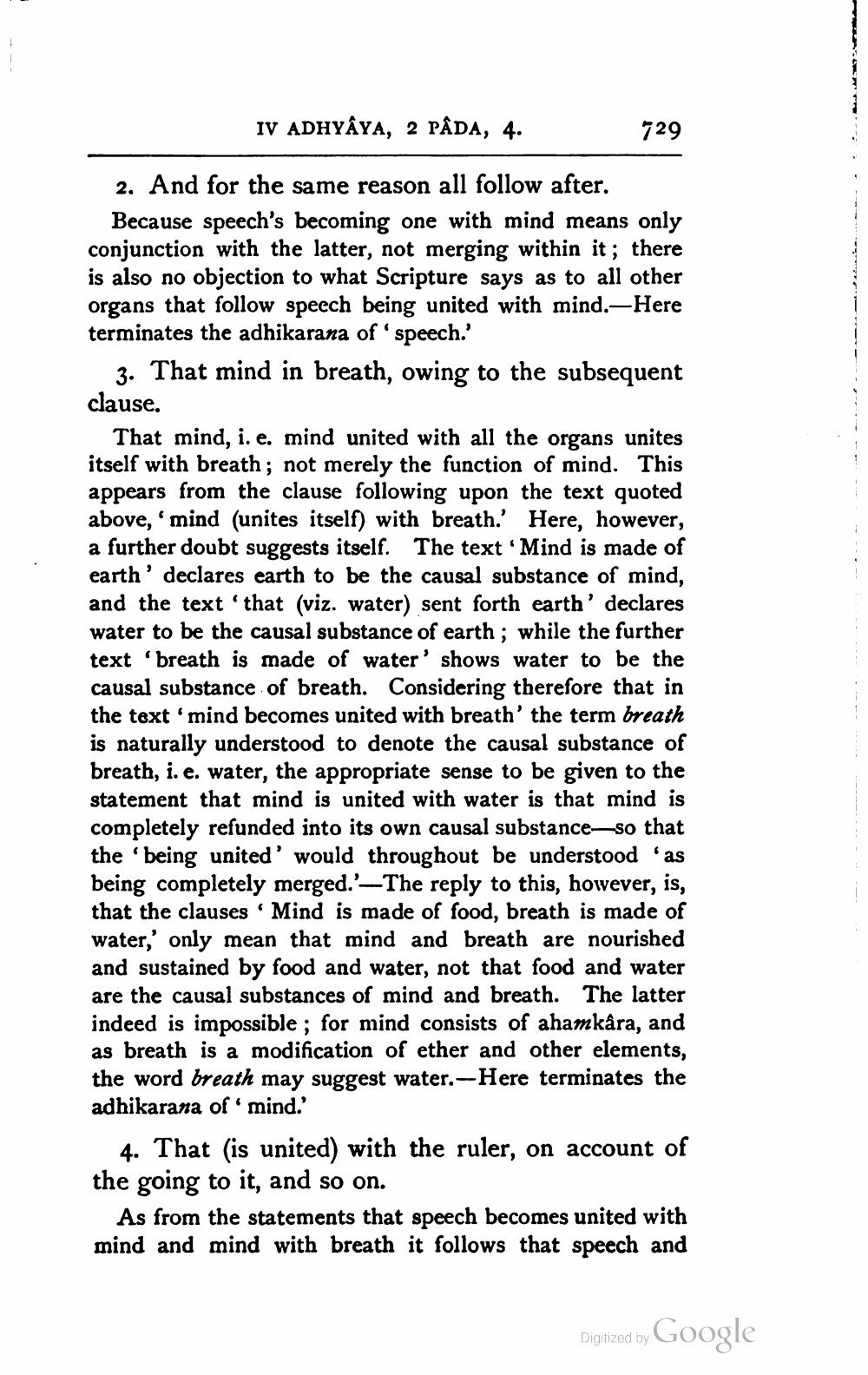________________
IV ADHYAYA, 2 PÂDA, 4.
729
2. And for the same reason all follow after. Because speech's becoming one with mind means only conjunction with the latter, not merging within it; there is also no objection to what Scripture says as to all other organs that follow speech being united with mind.—Here terminates the adhikarana of speech.'
3. That mind in breath, owing to the subsequent clause.
That mind, i.e. mind united with all the organs unites itself with breath: not merely the function of mind. This appears from the clause following upon the text quoted above, 'mind (unites itself) with breath.' Here, however, a further doubt suggests itself. The text.Mind is made of earth' declares earth to be the causal substance of mind, and the text that (viz. water) sent forth earthdeclares water to be the causal substance of earth; while the further text 'breath is made of water' shows water to be the causal substance of breath. Considering therefore that in the text mind becomes united with breath' the term breath is naturally understood to denote the causal substance of breath, i. e. water, the appropriate sense to be given to the statement that mind is united with water is that mind is completely refunded into its own causal substance—so that the 'being united' would throughout be understood as being completely merged.'-The reply to this, however, is, that the clauses 'Mind is made of food, breath is made of water,' only mean that mind and breath are nourished and sustained by food and water, not that food and water are the causal substances of mind and breath. The latter indeed is impossible ; for mind consists of ahamkara, and as breath is a modification of ether and other elements, the word breath may suggest water. -Here terminates the adhikarana of mind.'
4. That (is united) with the ruler, on account of the going to it, and so on.
As from the statements that speech becomes united with mind and mind with breath it follows that speech and
Digitized by Google




